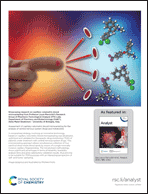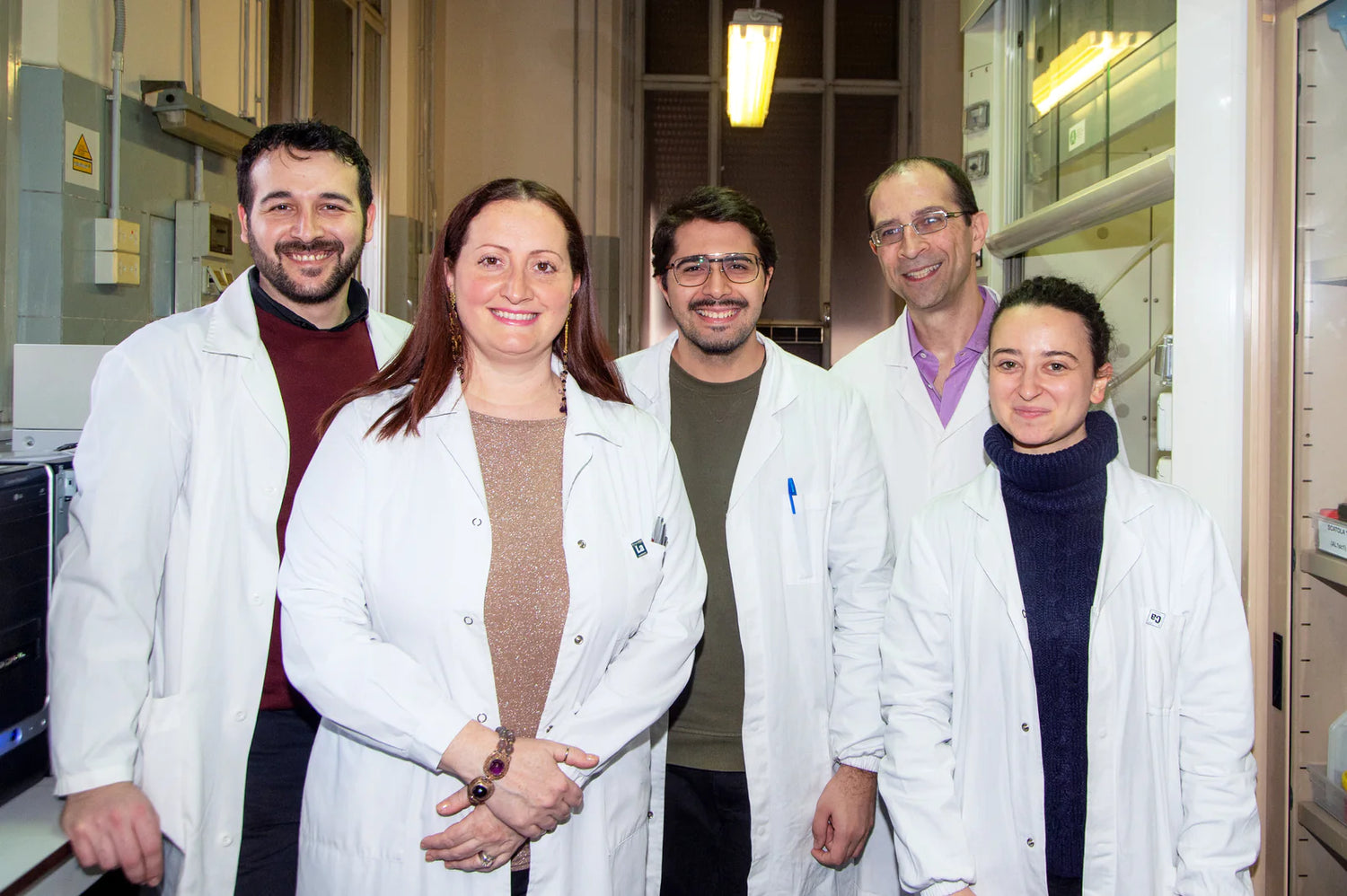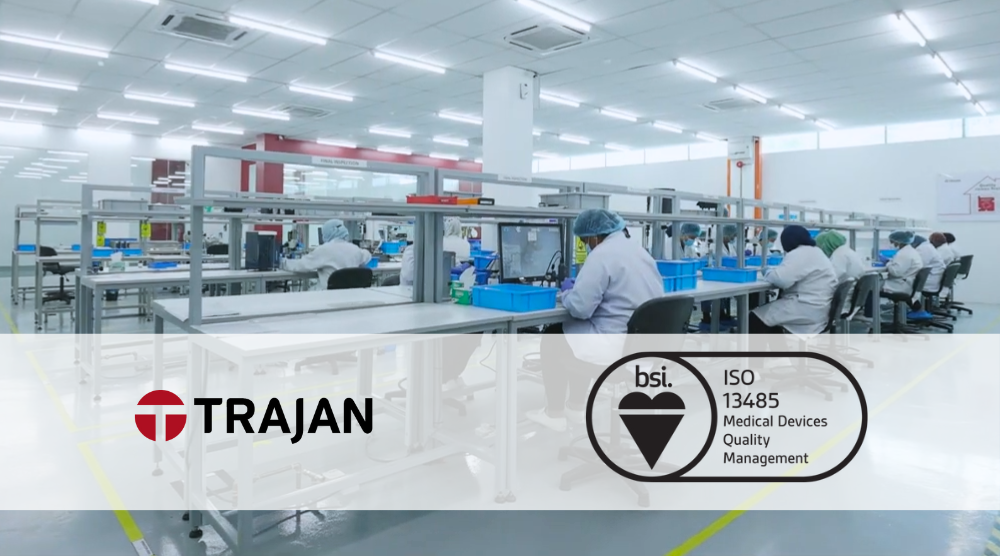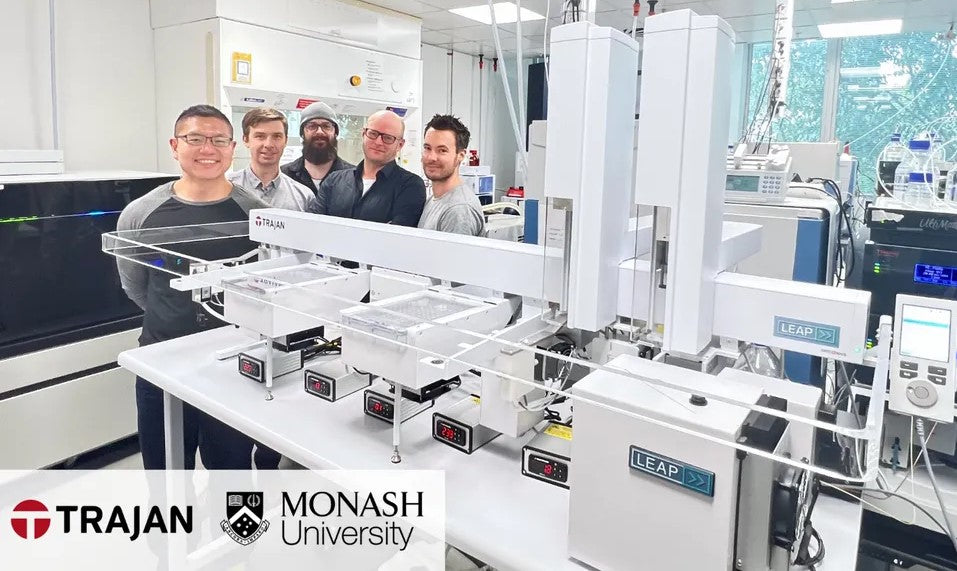Trajan Scientific and Medical’s (Trajan) hemaPEN® microsampling technology has been developed with extensive consultation and evaluation by leading analytical laboratories, clinicians and healthcare professionals.
This month, Trajan presents an exclusive interview with researcher Dr Michele Protti of Pharmaco-Toxicological Analysis (PTA Lab), Bologna, Italy, on the future of microsampling and the critical role hemaPEN can play when used in therapeutic drug monitoring (TDM) for optimal therapy personalization.
Dr Protti explains how “data quality is central” to advanced methodologies, through “timely validation of all the analytical procedures, but also and above all by correct sampling and pre-treatment protocols, essential for obtaining reliable results. And when delicate clinical outcomes depend on the data quality, as in the case of TDM, even greater attention must be given to all the analytical and pre-analytical steps.”
In comparison to other blood collection methods or traditional dried blood spot (DBS) protocols, Dr Protti said, “Microsampling is the ultimate tool to get rid from obsolete and cumbersome practices.”
 “As we have shown in one of the most recent research papers published by the PTA Lab research group, hemaPEN allows to simultaneously obtain four identical dried whole blood microsample replicates in one sampling step.”
“As we have shown in one of the most recent research papers published by the PTA Lab research group, hemaPEN allows to simultaneously obtain four identical dried whole blood microsample replicates in one sampling step.”
“The tamper-resistant nature, together with the inclusion of a desiccant integrated into the (hemaPEN) device, guarantees sample integrity while preventing any sample-operator cross-contamination.”
“Moreover, the (hemaPEN) pen-like design makes it particularly user-friendly and amenable for use by non-qualified personnel following a short and simple training.”
“Finally, it (hemaPEN) produces DBS microsamples, which are a well-known, widely used miniaturized matrix, allowing a feasible integration within already existing bioanalytical workflows.”
Core to Trajan’s success is working closely with industry, healthcare and academic partners to develop scientific real-world solutions to make a positive impact on human wellbeing.

Photo (L-R): Dr Michele Protti, Dr Laura Mercolini, PhD student Marco Cirrincione, Dr Roberto Mandrioli, and PhD student Camilla Marasca; Pharmaco-Toxicological Analysis (PTA Lab), Bologna, Italy.
Learn more from the full interview with Dr Protti below:
Bologna, Italy – 11 November 2020
1. What motivated you to choose this career in medicinal chemistry, and research in central nervous system (CNS) drugs?
I have always been fascinated by the biochemical mechanisms underlying pathophysiological states, and by the technological advances that allow accurate measurements. These can represent promising tools in the diagnosis, monitoring and treatment of diseases.
In fact, the study of the levels of biomarkers in the various biological matrices offers a unique snapshot of the health state of the human body. In this framework, I have made advanced bioanalysis my passion and my main interest in research at the Pharmaco-Toxicological Analysis Laboratory of the University of Bologna.
In particular, neurodegenerative diseases and related mental disorders represent a complex scenario still in need for advanced research. This can be addressed at the discovery of early biomarkers of disease progression or at the identification of new therapeutic targets or again at the monitoring of concentrations in biological fluids of drugs and their metabolites for optimal therapy personalization.
2. We are learning that compliance is an issue in therapeutic drug monitoring (TDM), why do you think this is a challenge for patients?
The TDM practice is particularly useful for evaluating central nervous system drugs. It is therefore logical to think that patients treated with antipsychotic and antidepressant drugs are those who can benefit most from an accurate monitoring of plasma concentrations, in order to improve the therapeutic response.
However, it is a peculiar and delicate patient population, often subjected to polypharmacy regimens characterized by side or unwanted effects. In addition, classical TDM practices require specialized personnel and facilities to collect blood by phlebotomy, which must be performed frequently to be effective.
In this context, it is immediate to think how the compliance of these patients is crucial for the success of clinical outcomes, and it is an aspect that should not be underestimated and should be optimized as well as bioanalytical methodologies.
3. At Trajan we believe the analytical quality of the sample is critical in TDM applications, what are your thoughts on this?
As a bioanalytical researcher, I am deeply convinced that data quality is the central and essential requirement around which revolve the effectiveness and applicability of all the advanced methodologies that we develop every day in the PTA Lab.
This is guaranteed by a timely validation of all the analytical procedures, but also and above all by correct sampling and pre-treatment protocols, essential for obtaining reliable results. And when delicate clinical outcomes depend on the data quality, as in the case of TDM, even greater attention must be given to all the analytical and pre-analytical steps.
4. Many of the design elements in hemaPEN are intended to protect sample integrity, how important is that in TDM?
Sample integrity is always crucial in bioanalytical applications, but it is particularly essential in all those cases where the sample is not collected in the analytical lab by professionals.
This is particularly true in the context of TDM where the samples are collected by the healthcare personnel or even more important in the perspective of home- and self-sampling protocols in which the patient himself collects the sample and carries or sends it to the laboratory for analysis. In these cases, the sample must guarantee perfect integrity and perfect storage and transport conditions from the moment of sampling to the moment of analysis.
5. Other design elements are to avoid sampling errors such as over- or under- sampling. How important is that, and has hemaPEN succeeded in your view? We think the ease of use of a device is important. What are your thoughts? How easy was hemaPEN to use?
Patient-centric TDM is one of the most virtuous objectives of clinical practices supported by bioanalysis. Frequent monitoring of patients affected by neurodegenerative diseases and related mental disorders being treated with CNS drugs, together with a careful evaluation of clinical outcomes, is the basis of an effective tailoring of therapeutic regimens that can lay the foundations for advanced precision medicine.
Today, these goals can be achieved through the implementation of feasible, rapid, error-proof sampling protocols that produce accurate, intact and quality samples without the need for time-consuming and complex training.
6. What were your key findings of hemaPEN’s performance? What could you achieve using hemaPEN, that you could not through other microsampling methods?
As we have shown in one of the most recent research papers published by the PTA Lab research group, hemaPEN allows to simultaneously obtain four identical dried whole blood microsample replicates in one sampling step.
The tamper-resistant nature, together with the inclusion of a desiccant integrated into the device, guarantees sample integrity while preventing any sample-operator cross-contamination.
Moreover, the pen-like design makes it particularly user-friendly and amenable for use by non-qualified personnel following a short and simple training.
Finally, it produces DBS microsamples, which are a well-known, widely used miniaturized matrix, allowing a feasible integration within already existing bioanalytical workflows.
7. What is your advice to others who would like to implement hemaPEN in their field?
When dealing with advanced microsampling approaches, scientists should keep in mind that data integrity and result reliability must come at the first place. In order to obtain sound and robust features in terms of quali-quantitative results, methodical approach to validation and bridging studies is fundamental.
For example, result agreement between classical methods and newly developed ones will strongly corroborate their actual reliability when put into practice. Also, I feel it is important to ‘convince’ the people who will have to implement such techniques, that microsampling is the ultimate tool to get rid from obsolete and cumbersome practices.
8. Where do you predict patient-centric microsampling will be in 5 years?
I hope for a progressive increase in the use of microsampling strategies both in research and in clinical practice. In fact, bioanalysis-driven research fields can benefit from the streamlining of procedures and protocols, thus being able to exploit high-throughput methodologies with high applicability.
In addition, clinicians can obtain crucial TDM data from patients more frequently in order to optimize therapies more effectively, thus limiting the occurrence of side effects and, in turn, hospitalization rates. This would ensure huge benefits for clinicians, patients and the healthcare system as a whole.
 Download
Download
Press release [PDF]
Related news
Advantages of hemaPEN blood microsampling validated for therapeutic drug monitoring in RSC’s Analyst
More information
Michele Protti
www.hemapen.com
rsc.li/analyst
Media contact information
Trajan Scientific and Medical
media@trajanscimed.com



